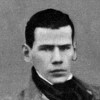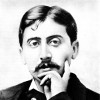“ For a man cannot change, that is to say become another person, while he continues to obey the dictates of the self which he has ceased to be. ”
Marcel Proust, Swann's Way (1913). copy citation
| Author | Marcel Proust |
|---|---|
| Source | Swann's Way |
| Topic | change self-knowledge |
| Date | 1913 |
| Language | English |
| Reference | |
| Note | Translated by C. K. Scott Moncrieff |
| Weblink | http://www.gutenberg.org/files/7178/7178-h/7178-h.htm |
Context
“In former times, having often thought with terror that a day must come when he would cease to be in love with Odette, he had determined to keep a sharp look-out, and as soon as he felt that love was beginning to escape him, to cling tightly to it and to hold it back. But now, to the faintness of his love there corresponded a simultaneous faintness in his desire to remain her lover. For a man cannot change, that is to say become another person, while he continues to obey the dictates of the self which he has ceased to be. Occasionally the name, if it caught his eye in a newspaper, of one of the men whom he supposed to have been Odette's lovers, reawakened his jealousy. But it was very slight, and, inasmuch as it proved to him that he had not completely emerged from that period in which he had so keenly suffered—though in it he had also known a way of feeling so intensely happy—and that the accidents of his course might still enable him to catch an occasional glimpse, stealthily and at a distance, of its beauties, this jealousy gave him, if anything, an agreeable thrill, as to the sad Parisian, when he has left Venice behind him and must return to France, a last mosquito proves that Italy and summer are still not too remote.”
source



